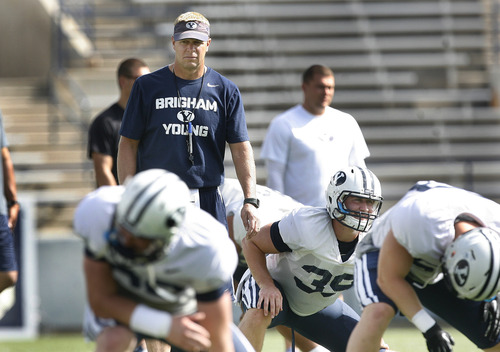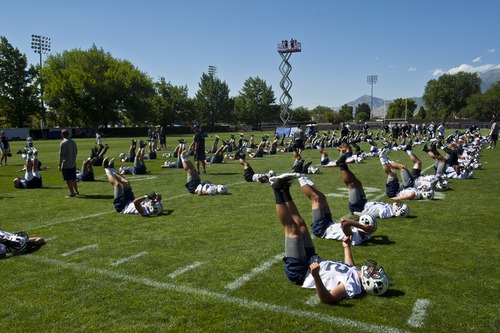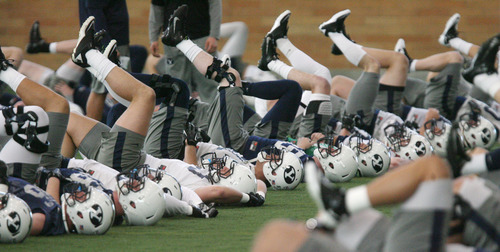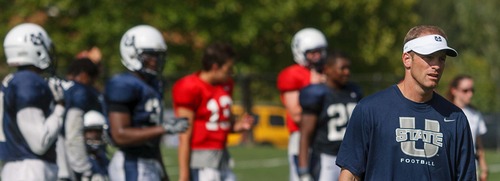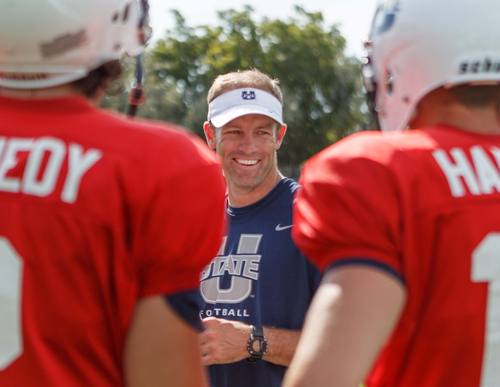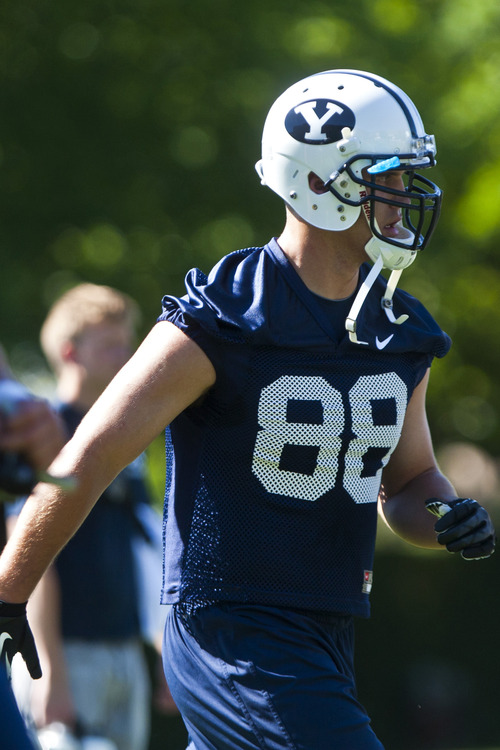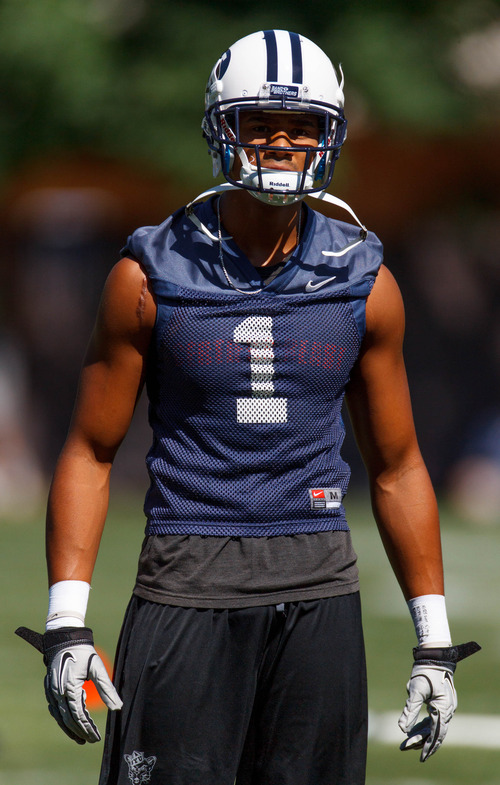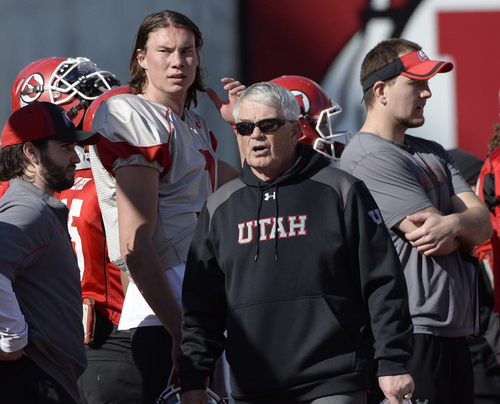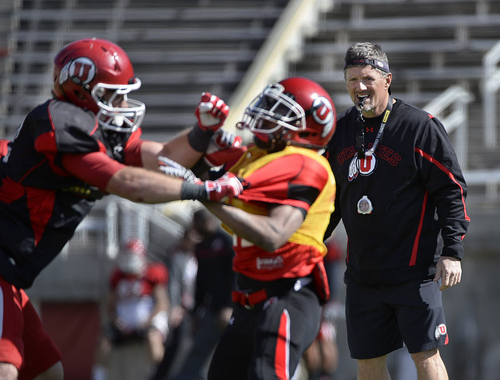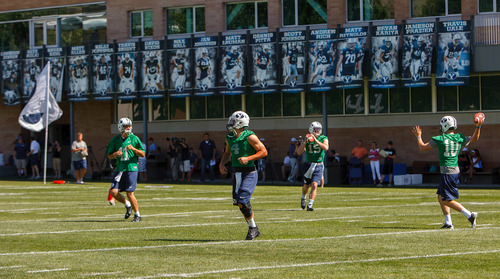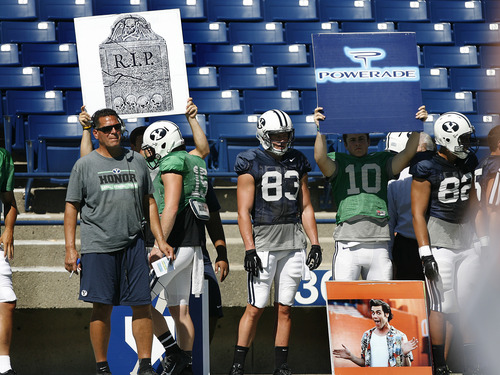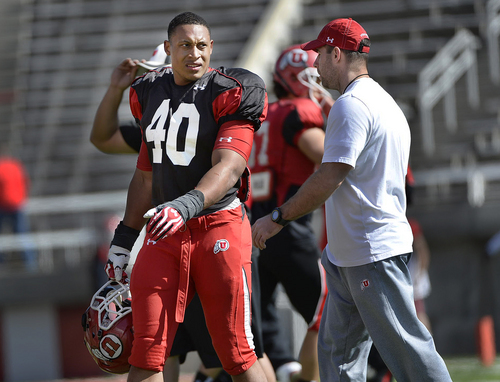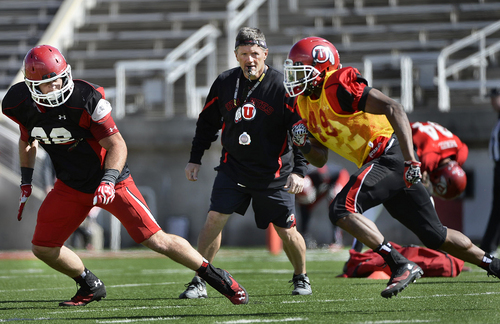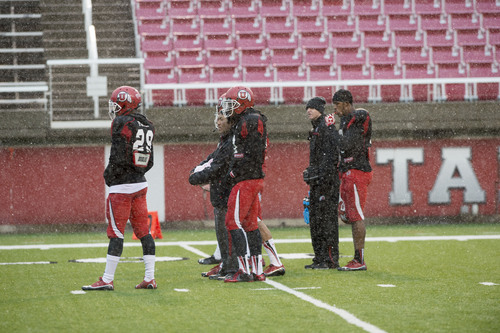This is an archived article that was published on sltrib.com in 2014, and information in the article may be outdated. It is provided only for personal research purposes and may not be reprinted.
Summer is supposed to be a relatively quiet time for college football players, with the only team-related items on their calendars being voluntary workouts. However, anyone who knows much about college football knows the workouts are anything but voluntary — unless a player wants to risk falling significantly behind his teammates.
If you want to play, you'd better practice. That is the unspoken rule for most college programs.
Finally, though, the NCAA is doing away with the smoke and mirrors and allowing programs to make summer workouts mandatory for football players, just as they have in men's and women's basketball.
Beginning this summer, schools are allowed to require athletes enrolled in summer school to participate in weight-training, conditioning and film sessions for an eight-week period as determined by the teams.
The participation has a limit of two hours of film work per week. Some exceptions to the enrollment requirement can be made for athletes who have met certain GPA and class participation standards.
Most coaches are welcoming the rule. They view it as a good compromise between giving athletes time on their own and being allowed to monitor the workouts through reports from strength and conditioning coaches.
Previously, passing along numbers such as players' performance statistics or height and weight wasn't allowed.
Now, there can be less fear that the star quarterback may show up at fall camp 50 pounds overweight while the star lineman is 50 pounds underweight.
"Before you couldn't even take attendance," BYU coach Bronco Mendenhall said.
"We will be paying for their school, so we can monitor not only their classes but their training," he added. "That's a good thing."
The rule doesn't allow organized contact drills, out of concern for players' safety.
"The reality is, there are so many guys who stay on campus during the summer and want to work out, the NCAA saw this as a way to monitor it," said Kate Charipar, the University of Utah assistant athletics director for compliance. "Everybody is trying to get bigger, faster and stronger and there was a lot of opportunity for abuse. Our workouts have always been voluntary, but you just don't see many guys going home anymore and not participating in these workouts."
Utah coach Kyle Whittingham said the biggest benefit he sees is being able to watch film with the athletes.
"We take our film work seriously and sometimes you have to teach players how to watch film and what to look for," he said. "We already have a good system in place with our strength coach Doug Elisaia, doing a great job getting the team ready, but this will help."
Whittingham said part of the value of summer workouts is that it is a good time for leadership to develop among the players without the coaches' presence.
"They've done an outstanding job in the past and we expect that to continue," he said.
BYU quarterback Taysom Hill said he welcomed the rule change but indicated he liked having a voice in the offseason workouts to organize drills and workout sessions.
"That's something that us as players will do," he said. "That wasn't really focused on from the coaching staff, but it is something that will be emphasized."
Utah State coach Matt Wells intends to use even less of the mandatory time allowed, believing the Aggies might use only an hour of film work a week, mainly focusing on the newcomers.
"I want our player leadership in the summer," he said.
"I think our players need a break from us too, to be honest with you," he added. "I want them to come into training camp fresh. We are going to play 13 games this year in the regular season and we plan to play two more so we need to be fresh and we as coaches need to be fresh too."
Nevertheless, making part of the summer workouts mandatory is an acknowledgement that college football more and more is becoming a year-round sport.
Not all view that idea as such a bad thing.
"Having the coaches there to go through things and tell us what to do helps," said Utah State lineman Austin Stephens. "We need every little bit to help us improve overall."
Reporter Jay Drew contributed to this report. —
Mandatory football workout guidelines
• Mandatory periods are eight weeks with eight hours a week, including up to two hours of film review with coaches, with the rest being strength and conditioning sessions.
• No skill instruction such as formations, running plays, etc., is permitted.
• Returning student-athletes may participate without being enrolled in classes if they meet certain academic standard benchmarks, otherwise they may only practice while classes are in session.
• Incoming student-athletes may participate only while enrolled in summer courses and during the period of time their classes are in session.


